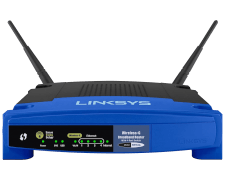802.11g
802.11g is one of several Wi-Fi standards developed by the Institute of Electrical and Electronics Engineers (IEEE) for transmitting data over a wireless local area network. It launched in 2003 as a replacement for the previous generations, 802.11a and 802.11b. It operates on the 2.4 GHz microwave radio band and supports data transfer speeds up to 54 Mbps. It is now also known as Wi-Fi 3.
An 802.11g Wi-Fi network provides roughly the same wireless range as a previous-generation 802.11b network, approximately 38 meters or 125 feet indoors. The standard also maintains backward compatibility with 802.11b, allowing an 802.11b device to connect to a network created by an 802.11g router. However, any 802.11b devices on a network will limit every other Wi-Fi device to 11 Mbps (the maximum speed of an 802.11b connection).
The 802.11g standard gained popularity along with the rise of home broadband Internet. It offered data transfer rates that, while only half the speed of 100 Mbps Ethernet, were fast enough to keep up with the DSL and cable Internet connections of the time. The next generation of Wi-Fi, 802.11n, arrived in 2009 and offered better speeds and less interference by operating across both the 2.4GHz and 5GHz bands.
 Test Your Knowledge
Test Your Knowledge